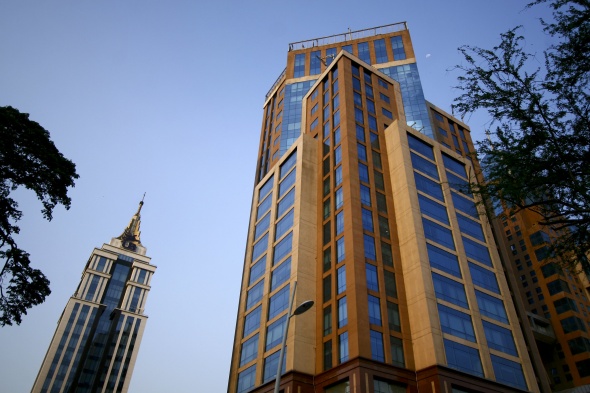GBPN sharpens its focus on decarbonising housing in India and South East Asia

With the generous support from the Aspen Global Change Institute and the CRUX initiative, the Global Building Performance Network’s (GBPN) is thrilled to announce a new project phase to continue to work towards decarbonising housing in India and South East Asia.
Our strategy is to develop a ‘policy implementation pipeline’ that leads regional jurisdictions through policy planning, policy adoption, and policy implementation. We’ll provide technical assistance and training in order to build local capabilities to design and implement ambitious building energy codes, emphasising the residential building.
Why Focus on Decarbonising Housing in Non-OECD Asia?
Over the next 4 decades building floor area is projected to grow by 280 billion m2 (over 3 trillion sq.ft). After demolition rates are factored in this equates to adding an average of 6.5 billion m2 (70 billion sq.ft) of new floor area annually – equivalent to constructing the entire building stock of Japan every year from now until 2060 (IEA, 2017). The majority of this growth in new floor area will occur in non-OECD Asia (India and S.E. Asia) and China, where GBPN has well established expert networks and partners.
Residential building energy use accounts for nearly 75% of total global annual consumption, and has increased by an average of 30% since 1990. This equates to about 42% of annual building-related GHG emissions or 5.5GtCO2. In rapidly growing economies such as India and Indonesia residential building energy use has increased by more than 50% over the same period. This trend is accelerating, with the largest projected growth in energy demand from buildings in the next decade coming from new residential construction in warm climates in Non-OECD Asia.
The Global Building Performance Network’s (GBPN) focus over the next two years is therefore on Asian and S.E. Asian markets where floor area and energy demand for space cooling is increasing rapidly, and building energy demand remains poorly regulated.
Our new ‘Policy Strategy for Decarbonizing the Buildings Sector’ aims to directly support adoption and implementation of building energy codes across South East Asia with a focus on expanding the coverage of residential energy codes in Indonesia and India, and also develop capability of policy makers across SE Asia to implement them.
We will do this by:
-
Working with a broad range of stakeholders, including governments, cities and local authorities, universities and research centers, international experts, and NGOs
-
providing technical assistance and training in order to build local capabilities to design and implement ambitious building energy codes, emphasising the residential building
-
developing and deploying resources through our network of experts who provide experience and best practice knowledge to governments,
-
leveraging existing relationships with government agencies in India, China, and ASEAN members Thailand, Indonesia, Vietnam, Malaysia, Singapore and The Philippines.
We believe that the greatest impact our network can make is to ensure that building codes and policies across India and South East Asia are fit for purpose, based on lessons learnt in other markets, and that governments have the skills and capacity to implement them.
Related News
- GBPN joins forces with AEEE and CEPT in efforts to decarbonize India’s residential building sector
- GBPN to collaborate with Green Building Council Indonesia
- Board meeting and retreat – Singapore, 19-22 January 2020
- Jane Henley appointed President of GBPN
- Net Zero Healthy Masterclass Week 4
Related Blogs
Share This Story, Choose Your Platform!
Stay in touch with how we’re transforming the buildings sector
GBPN runs innovative building policy reform programs in key regions around the world that aim to tackle the climate emergency by decarbonising the buildings sector. Stay up to date with our newsletter.
Stay in touch with how we’re transforming the buildings sector
GBPN runs innovative building policy reform programs in key regions around the world that aim to tackle the climate emergency by decarbonising the buildings sector. Stay up to date with our newsletter.




